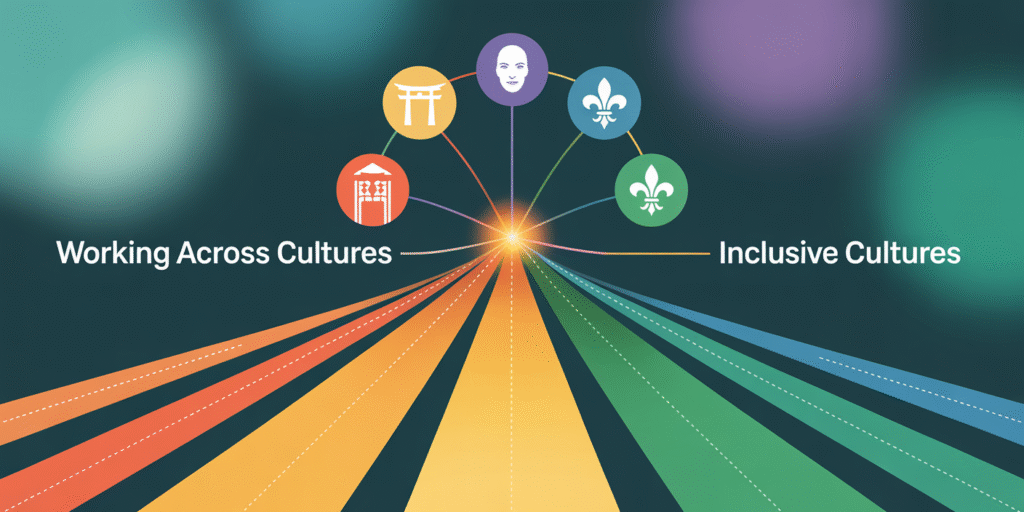Cross-Cultural Training and Assessments

In today’s global business landscape, the ability to collaborate seamlessly across borders is no longer optional, it’s essential. Organizations that invest in cross-cultural training and assessments are not only equipping their employees with soft skills but also laying the foundation for long-term growth, innovation, and leadership in international markets.
At Cultural Pathways, we specialize in Cultural & Intercultural Training (Tailored Solutions for Growth), ensuring that leaders and teams are prepared to work effectively in diverse, multicultural environments.
Why Cross-Cultural Readiness Matters
One of the biggest challenges organizations face is understanding how prepared their teams are to work internationally. A cross-cultural readiness test helps businesses measure this preparedness objectively. By identifying strengths and gaps, companies can design targeted interventions that accelerate adaptation and performance in global settings.
When employees know their cultural strengths and blind spots, they become better collaborators, avoiding misunderstandings, reducing friction, and building trust with international clients, partners, and colleagues.

The Role of Intercultural Competence Training
A cross-cultural readiness test is only the first step. What truly drives change is intercultural competence training. This type of training goes beyond theory, it develops practical skills such as active listening, empathy, and adaptive communication styles.
Through intercultural competence training, individuals learn how to navigate cultural nuances in negotiations, team meetings, and client interactions. These skills are critical for leaders and employees who need to manage diverse teams or expand into new markets.
Measuring Cultural Adaptability for Growth
Global expansion requires more than business acumen, it requires cultural agility. Cultural adaptability measurement provides organizations with a benchmark of how well their teams can adjust to new cultural contexts.
With cultural adaptability measurement, leaders gain actionable insights into whether their workforce can handle challenges like working in new geographies, adapting to unfamiliar business etiquettes, or leading teams with diverse cultural values. Companies that integrate this measurement into their talent strategy gain a competitive edge in global operations.
Building Confidence in Working Across Cultures
Ultimately, success in global markets comes down to confidence in working across cultures. Teams that undergo a cross-cultural readiness test, complete intercultural competence training, and are supported by cultural adaptability measurement tools develop the resilience needed to thrive in high-stakes environments.
At Cultural Pathways, our tailored programs equip leaders with frameworks and skills for working across cultures, ensuring they can adapt quickly, lead effectively, and drive growth in complex international markets.

Global business is about more than products and services, it’s about people. Organizations that prioritize cross-cultural training and assessments not only strengthen internal collaboration but also create lasting partnerships worldwide.
By leveraging tools like the cross-cultural readiness test, investing in intercultural competence training, and applying cultural adaptability measurement, your teams will be ready to excel at working across cultures.
Cultural intelligence is no longer a nice-to-have, it’s a must-have. With the right training and assessments, your organization can build high-performing global teams prepared for the challenges of tomorrow.
Take the Next Step
If you’re ready to strengthen your leadership skills and expand your global impact, explore our coaching and leadership services. Together, we’ll equip you with the cultural intelligence and strategies to thrive in a world without borders.
